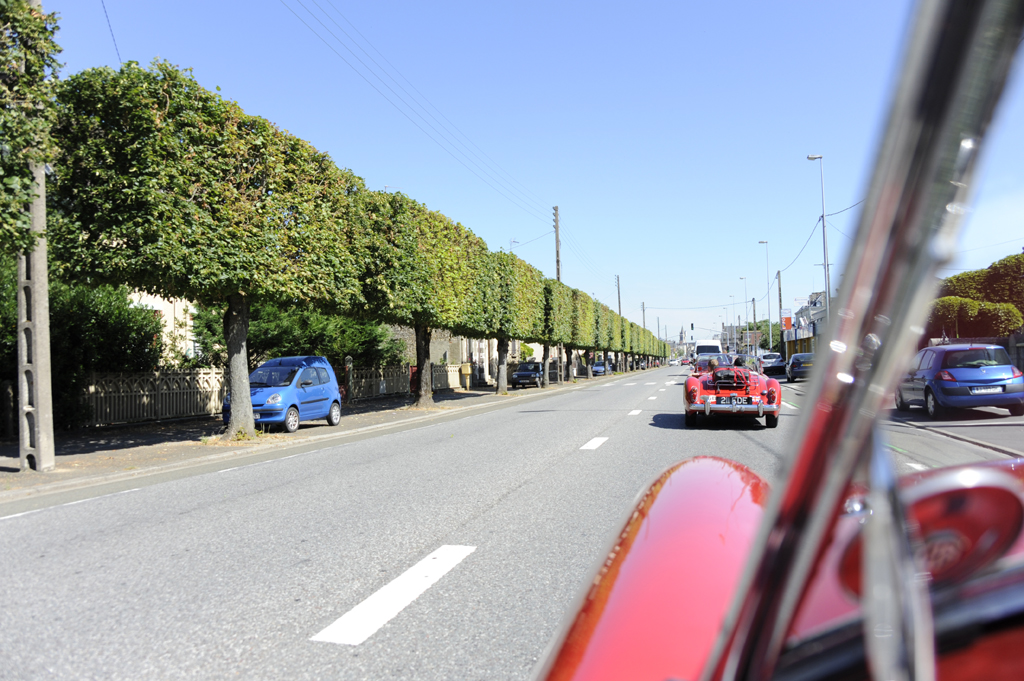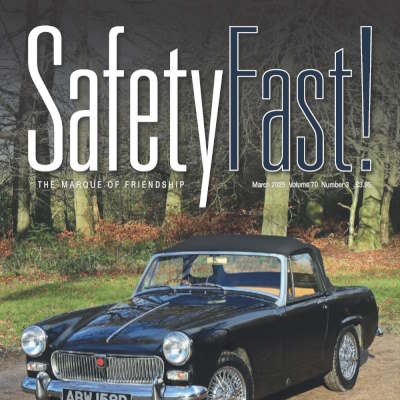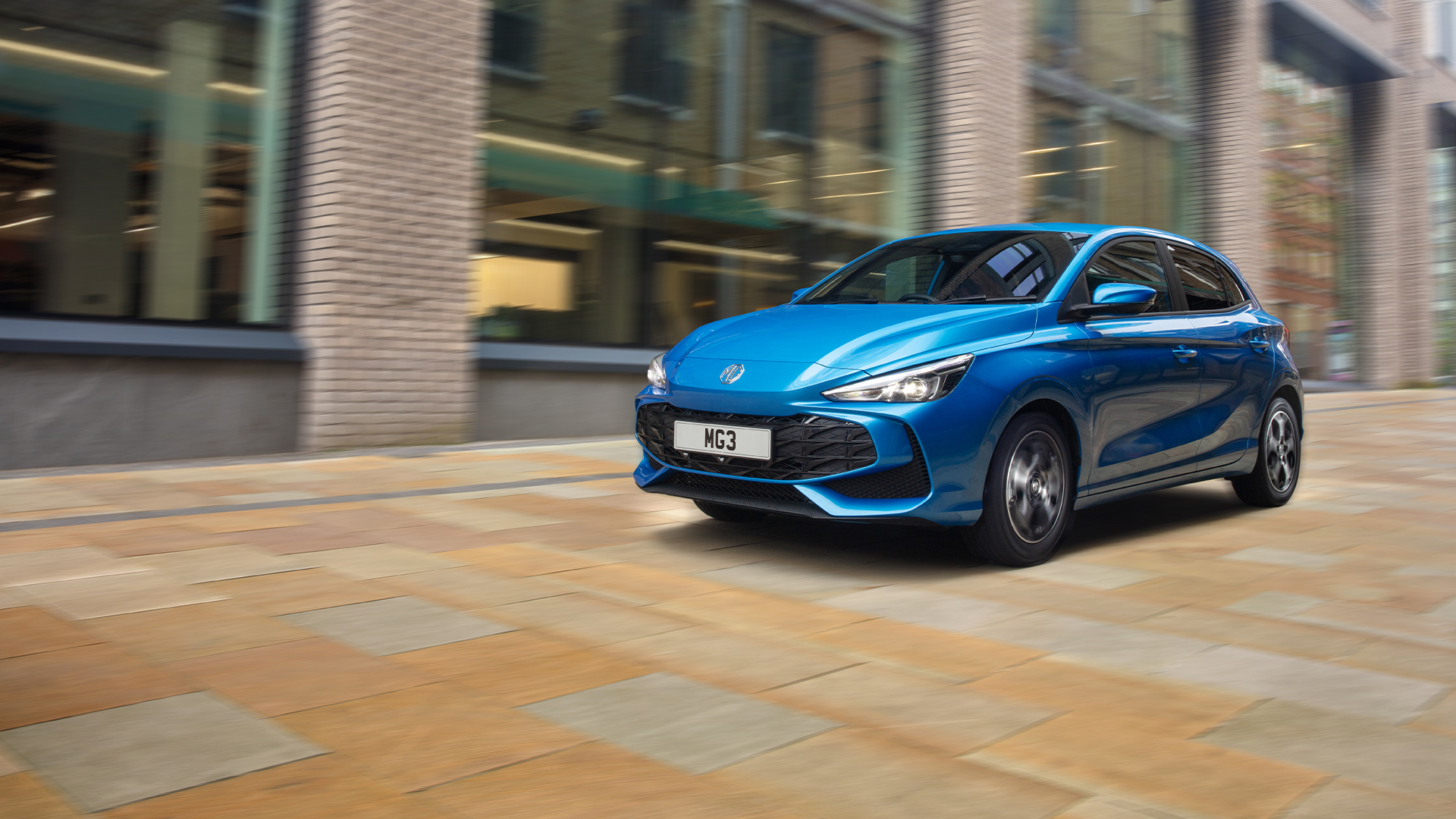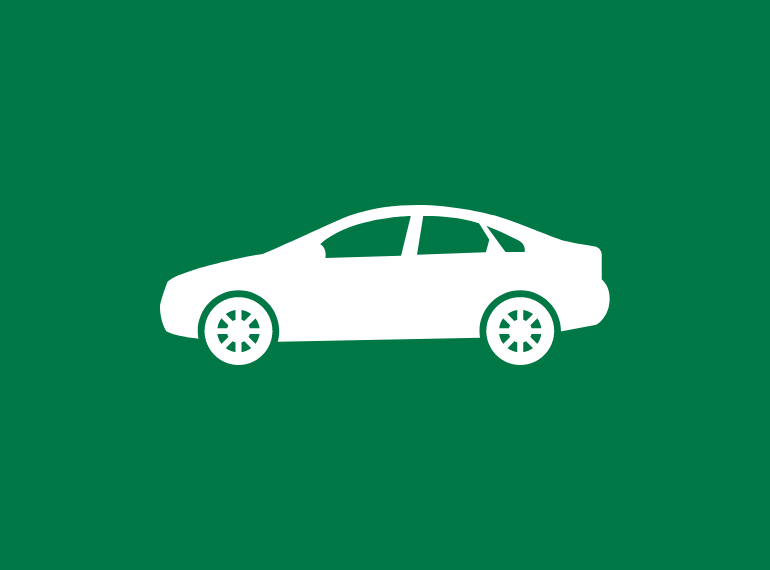MG Motoring in France
Reproduction in whole or in part of any article published on this website is prohibited without written permission of The MG Car Club.
Colin Grant gives an overview of motoring abroad
At this time of year, particularly with the lovely summer we are having, our attention turns to holidays. Many of our UK members wish to combine their hobby with their holiday and take their cars to Europe and in particular France. Because of this we get many calls asking what is required when driving abroad and below we give an overview of what is required, taking France as an example. We will in a future article cover Continental travel in more detail.
Before you leave
Make sure you prepare your trip thoroughly, as lack of preparation can turn a minor issue into a major headache. Before you leave make sure you have arranged things at home like cancelling the milk, having someone pick up the mail, and a neighbour or friend to look after your dog or cat, as this can avoid stressful calls to solve issues when travelling abroad.
Make sure passports are up to date and are valid for the whole of the trip. Check that you have all the necessary documentation you need to carry. Prepare your route, and the stops you wish to make. As an enthusiast I’m sure your MG is in tip top condition, but if you are not of a mechanical persuasion then it’s a good idea to get an MG specialist to give your car a thorough check over before you make your trip.
The last thing you need is a breakdown through lack of routine maintenance. On that subject it’s always a good idea to carry a basic kit of spares without filling the boot! Try not to overload your car, and make sure your tyres are in good order and the tyre pressures reflect the extra load being carried.
What you need to carry
National Driving Licence
Always carry your driving licence, vehicle registration document (V5C), and certificate of motor insurance. If your licence does not incorporate a photograph ensure you carry your passport to validate the licence. If the vehicle is not registered in your name, carry a letter from the registered owner giving you permission to drive.
Breakdown Recovery Insurance
Remember to check that your breakdown policy covers European travel. The RAC for instance have two policies additional to their UK cover, either a basic one trip policy or a fully comprehensive policy, both with access to English speaking incident managers available 24/7.
Motor Vehicle Insurance
Vehicle Registration Document
GB Sticker/Europlate
Warning Triangle
Two required if towing a trailer
Reflectorised jacket/waistcoat
The law in France only requires one vest to be carried, to be put on by the driver or the person who gets out of the car to deal with an emergency; by law the vest has to be carried in the cabin – it is not legal to keep it in the boot or any place where the driver has to get out of the car before putting it on. As a suggestion we feel it would be a good idea to carry one vest per person in the event of all passengers having to vacate the car.
Breathalyser specifically calibrated to the French alcohol limit (0.05%) and NF approved.
Although compulsory the proposal of an instant fine for not carrying a breathalyser has been postponed indefinitely.
What you need to know
Headlamp adjustment required
Either via fitted adjusters or stick on converters
Seat belts required front and rear
Exempt for cars not originally fitted with seat belts.
Minimum age at which a UK Driving Licence is accepted is 18
Carrying spare headlamp bulbs is recommended, not compulsory
Minimum age for a child in the front seat is 10 years of age
Children under 10 are only allowed in the front seats if there are no rear seats or the rear seats are already fully occupied by children under 10, or there are no seat belts. If a child must travel in the front under the above circumstances then they cannot be placed in the front seats with their back to the direction of travel if the vehicle is fitted with a passenger airbag, unless it is deactivated. They must travel in an approved child seat or restraint adapted to their size. In the rear they must use a proper restraint system appropriate to their weight, which means a child seat if they weigh between 9 and 15 kg. Over this weight they can use seat belts with a booster cushion
Safety Camera warning devices are not allowed even if built into your satnav
They must be disabled before driving in France, otherwise if caught can incur a heavy fine, confiscation of the device and even the vehicle.
On the Spot Fines
The moment these are demanded they have to be paid in cash, in the local currency to the arresting officer. Credit cards or travellers cheques are not accepted.
Using Your Mobile
Drivers caught using their mobile phone while driving in France are liable to an on the spot fine of 130 Euros.
French Motorways
Be aware that most French motorways, known as Autoroutes, are toll motorways. The normal procedure is to collect a ticket from a booth, by pressing a button, and then pay as you leave the Autoroute or when it comes to an end. The tickets are time marked and can be used to issue spot speeding fines!
Fuel
All grades of unleaded petrol and diesel are available. As in the UK, LPG is only available at some stations. Leaded no longer exists. You are allowed to carry petrol in a can. Credit and debit cards are widely accepted, although they often won’t work at automatic pumps, which are often the only pumps in rural areas open out-of-hours, which also means lunch-time from noon to 3pm. Note that Supermarket fuel stations tend not to be manned on Sundays. It’s a good idea to let your card issuer know you will be travelling abroad. This ensures they don’t suspend your card if they spot it being used in unfamiliar places, which they sometimes do as an anti-fraud measure.
Motor insurance
Third-party insurance is compulsory. A green card is not required but your insurer should be advised of your trip.
Lights
Dipped headlights must be used in poor daytime visibility.
Driving
Unless you drive regularly abroad, be prepared for the extra physical and mental strains put on you by driving on the wrong side of the road. This can affect your passengers as well, so take them into consideration. Take plenty of rest stops and arrange your trip into segments of say two hours, then stop for a drink and a light bite.
Avoid eating a heavy meal whilst travelling as this can make you feel tired, and with tiredness comes lack of concentration. If you have a partner or fellow passenger who can drive, get them to share the driving. This allows each driver to take a break and increases concentration. Make sure your insurance covers them to drive.
Using a satnav is a great idea but don’t rely on it totally. Research your route beforehand and have maps at the ready with a fully briefed passenger to help your through any tricky situations. Driving abroad can be a rewarding and enjoyable experience so remember drive
Words and photos: Colin Grant.
Please note: Although correct at the time of writing please check out points raised above to see if any changes in legislation have been made by using the internet/motoring organisations for updates.

 MG Car Club
MG Car Club



